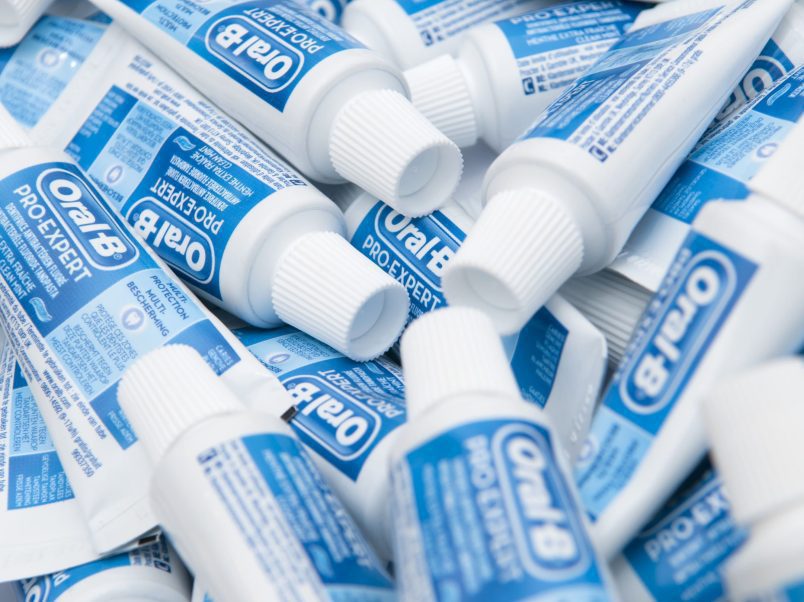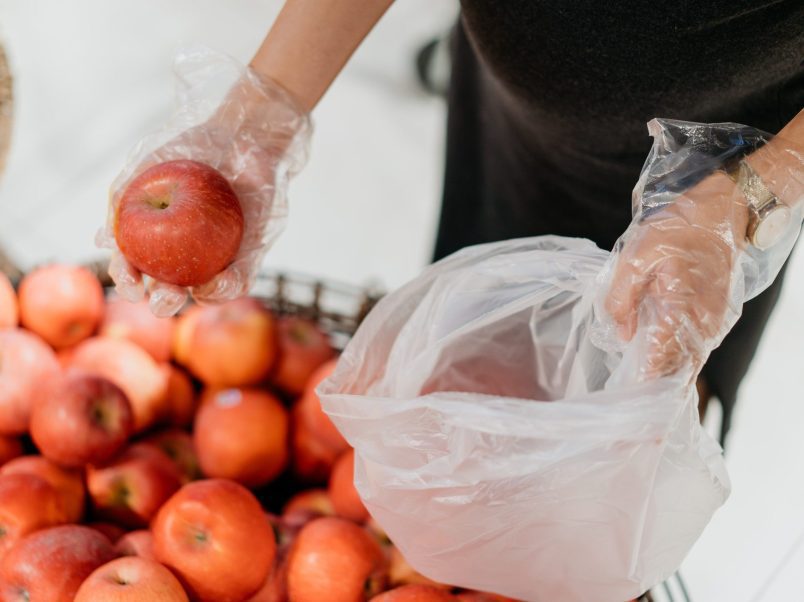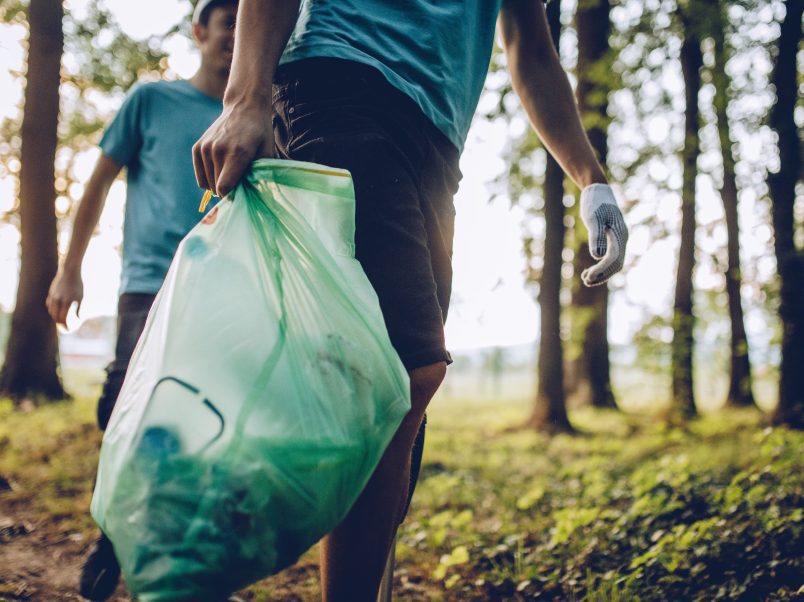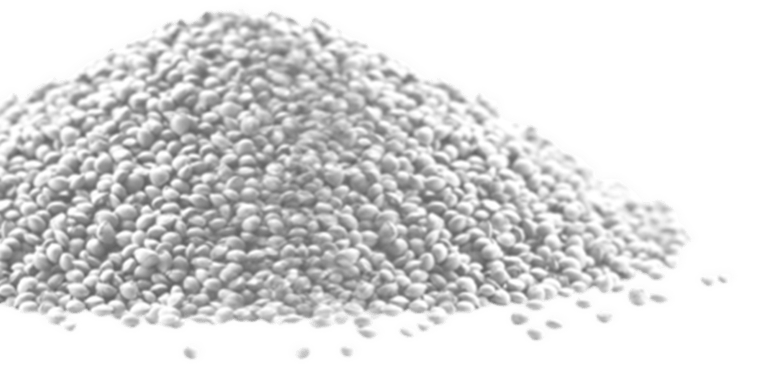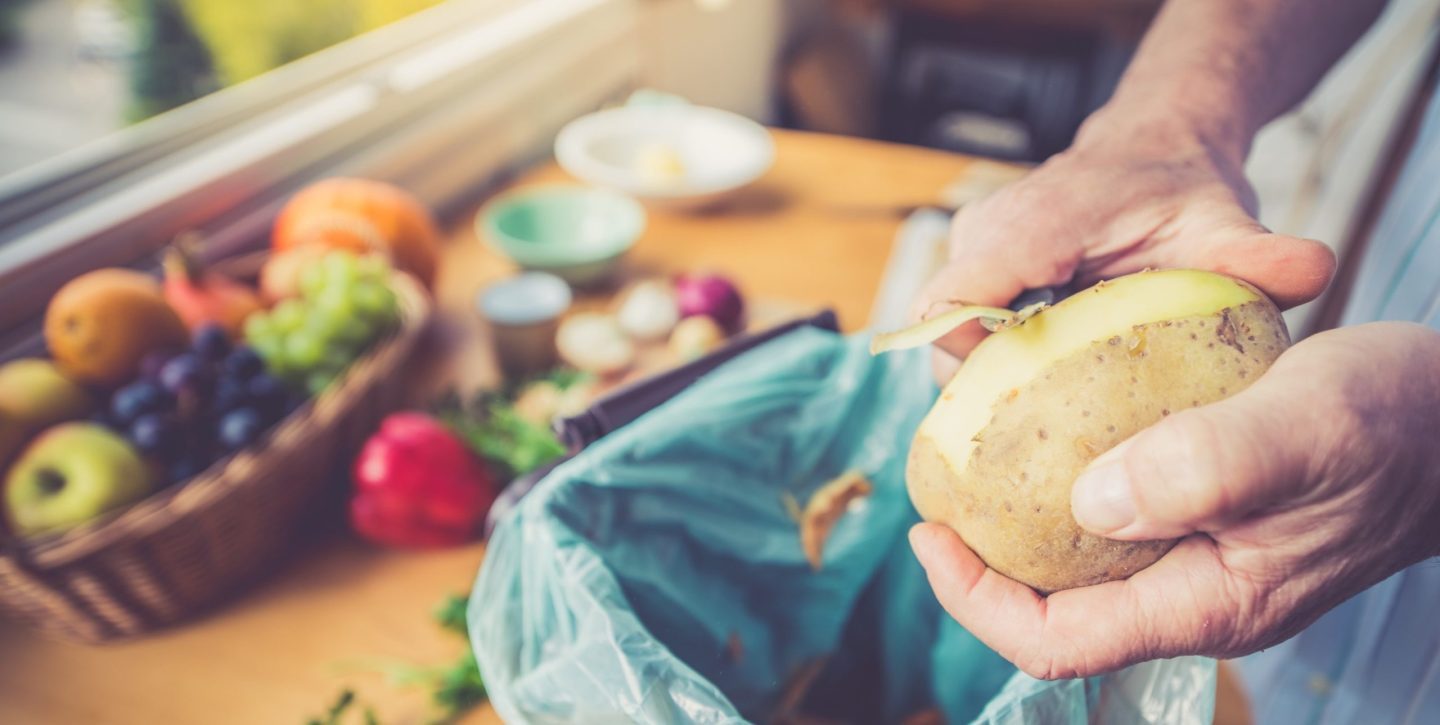
Waste bags from Bioplastics
Compostable bags for biodegradable waste are clean, hygienic and certified, making it easier for you to collect more biodegradable waste.
We are happy to help.
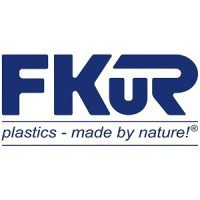
Sales team
Biodegradable waste is too valuable to throw away
In Germany alone, 5 million tons of biodegradable waste end up in the residual waste instead of in the biodegradable waste collection bin. However, this “waste” is a valuable resource and like other reusable materials should be separated and recycled. With compostable biodegradable waste bags, consumers can collect and dispose of their kitchen rubbish and biodegradable waste more easily and hygienically. A welcome side effect: Incorrectly disposed items are avoided, and the biodegradable waste, which is up to 70% water, doesn’t end up in the residual waste. This not only increases the amount of separately collected biodegradable waste, it also increases the quality of the resulting compost.
Food scraps, garden waste and other organic materials are valuable materials, not waste. Composting, i.e. the process of natural recycling by microorganisms and bacteria such as fungi, creates a new product: valuable compost. The more these natural fertilisers are used in agriculture, the less mineral artificial fertiliser is needed. As a result, the quality of the soil can be improved over the long term.
Bioplastic for waste bags that can be composted at home or industrially
Certified compostable waste bags can be made from our Bio-Flex® and Ceroflex® bioplastics. Bio-Flex® granulates are based on the renewable raw material PLA (polylactic acid), while Ceroflex® is made from corn starch. Both compounds can be processed with excellent results on conventional blow moulding machines. Depending on the requirements, customers can choose between types that can be composted in the home or industrially (in accordance with EN 13432). Both materials are completely degraded into water, CO2 and biomass in industrial composting plants or domestic garden compost in exactly the same way as organic waste.
Tear-proof and fluid-resistant for clean disposal
For many consumers, the unhygienic collection and disposal of kitchen and food waste is the main reason they do not separate biodegradable waste. Are you fed up of leaky paper bags and want to be able to take your biodegradable waste out without creating a mess? Biodegradable waste bags made from our compostable plastics are thin and yet particularly robust and water-resistant. Bio-Flex® has a higher moisture barrier than other bioplastics and is particularly suitable for closed waste bins. The starch-based Ceroflex® compounds have a higher water vapour permeability and are perfect for ventilated biodegradable waste bins. In addition, organic waste gives off moisture while it is in the container. In the case of Bio-Flex®, this moisture remains in the bag, while with Ceroflex® it evaporates thanks to the higher breathability of the film. In both cases, the moisture does not collect in the bin. An ideal solution for greater hygiene in your kitchen and biodegradable waste bin.
Bio-based and recyclable plastics for conventional waste bags
“Drop-in” bioplastics are a good choice if waste bags and sacks are to be fully recyclable in existing recycling streams. These bioplastics have the same properties as their fossil counterparts, but are based on renewable biomass rather than mineral oil.
The bio-based plastics Green PE (Bio-PE) and Terralene® can be used to produce both thin, small-size bags and thick, heavy-duty sacks. Bags made from these plastics correspond both mechanically and visually to those made from fossil-based polyethylene. After use, they can be completely recycled in the PE recycling stream and used to make new products.

